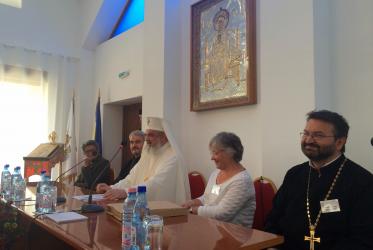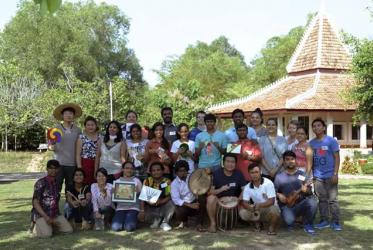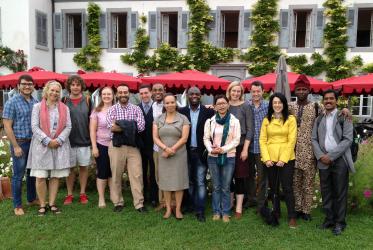Displaying 141 - 160 of 191
WCC commission promotes ecumenical learning and education
26 February 2015
Ecumenical workshop in Cuba promotes life-affirming epistemologies
23 February 2015
Understanding justice and peace as Christian pilgrims
15 January 2015
Water network develops a theological framework for water justice
12 December 2014
Young theologians explore ways of furthering ecumenical formation
16 September 2014
WCC commission leadership selected
13 August 2014
After Busan: A pilgrimage of justice and peace
29 January 2014









